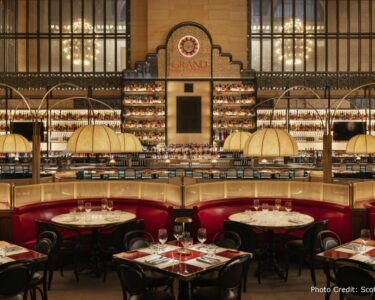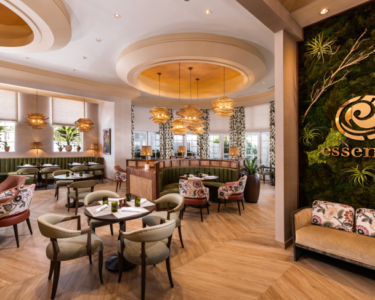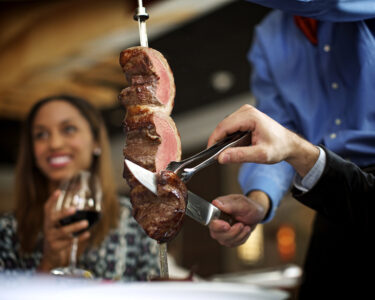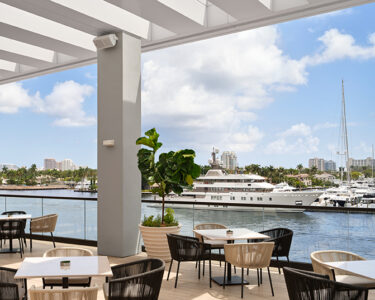During the busy holiday season, you may find yourself dining out more often, whether with friends, family, or work colleagues to celebrate a good year. Each time you dine out, you expect to receive a certain level of service, but also a high level of quality and safety. Restaurant owners have a responsibility to maintain a safe premise for their patrons or provide warnings if unsafe conditions exist at the establishment, or they risk being held liable for injuries that occur inside or even in the parking lot of their restaurant. If safety is not a top concern, here are three areas where restaurants can be held liable for damages or injury to patrons of the establishment.
Slip-and-Falls
Food safety should always be a top priority at any restaurant, but so should the safety of each customer as they move about the restaurant. If any food or drink spills on the floor, it should be cleaned immediately to prevent any slip-and-fall accident. If a patron does fall, and it can be proven that the restaurant acted negligently by ignoring the mess or not warning customers of the danger, the restaurant may be responsible for any injuries sustained as a result of an unsafe floor.
A Safe Premise
Any property owner is responsible for maintaining a safe premise, both in and around their property. If a restaurant does not have proper lighting or does not have adequate security, it can be held liable for any accident that occurs inside or outside the building. For example, if dark conditions in the parking lot have resulted in several robberies and the restaurant is aware but does not provide security measures to prevent any further crimes, that establishment may be held liable for those incidents.
Liquor Liability
Any establishment that sells alcohol assumes an inherent risk. In the state of Florida, we have a Dram Shop Act, which states that someone who is injured by a drunk person can seek compensation from the establishment where the drunk patron was served. A restaurant can be liable for alcohol-related injuries if it can be proven that it willfully and unlawfully served alcohol to a minor or someone who is “habitually addicted.”
Vendors should consider educating staff regularly on the laws and risks associated with alcohol service. If an establishment offers in-depth instruction on this topic, it can be designated a “responsible vendor,” which is a safeguard against criminal liability and losing their liquor license.
A restaurant owes its highest level of care to its customers, but visitors also have a responsibility to act in a responsible way. If a patron of the restaurant does not pay attention to warnings or refuses to stop drinking when requested by the management, he or she may be considered comparatively negligent in any injuries suffered while dining out.
If you feel that at any time a restaurant or bar has been negligent in providing a less than a safe environment and injuries or damages were sustained while at that establishment, it’s a good idea to contact an experienced personal injury attorney. Your attorney can assess your case and may be able to assist you in seeking compensation for your injuries.
The offices of Panter, Panter, & Sampedro are located at 6950 N. Kendall Drive. For more information, call 305-662- 6718, or visit PanterLaw.com.














 Deering Estate
Deering Estate
 Massage Envy South Miami
Massage Envy South Miami
 Calla Blow Dry
Calla Blow Dry
 My Derma Clinic
My Derma Clinic
 Sushi Maki
Sushi Maki
 Sports Grill
Sports Grill
 The Healthy Kitchen
The Healthy Kitchen
 Golden Rule Seafood
Golden Rule Seafood
 Malanga Cuban Café
Malanga Cuban Café

 Kathleen Ballard
Kathleen Ballard
 Panter, Panter & Sampedro
Panter, Panter & Sampedro
 Vintage Liquors
Vintage Liquors
 The Dog from Ipanema
The Dog from Ipanema
 Rubinstein Family Chiropractic
Rubinstein Family Chiropractic
 Your Pet’s Best
Your Pet’s Best
 Indigo Republic
Indigo Republic




 ATR Luxury Homes
ATR Luxury Homes


 2112 Design Studio
2112 Design Studio
 Hamilton Fox & Company
Hamilton Fox & Company
 Creative Design Services
Creative Design Services
 Best Pest Professionals
Best Pest Professionals
 HD Tree Services
HD Tree Services
 Trinity Air Conditioning Company
Trinity Air Conditioning Company
 Cisca Construction & Development
Cisca Construction & Development
 Mosquito Joe
Mosquito Joe
 Cutler Bay Solar Solutions
Cutler Bay Solar Solutions


 Miami Royal Ballet & Dance
Miami Royal Ballet & Dance
 Christopher Columbus
Christopher Columbus
 Pineview Preschools
Pineview Preschools
 Westminster
Westminster
 Carrollton
Carrollton
 Lil’ Jungle
Lil’ Jungle
 Frost Science Museum
Frost Science Museum
 Palmer Trinity School
Palmer Trinity School
 South Florida Music
South Florida Music
 Pinecrest Orthodontics
Pinecrest Orthodontics
 Dr. Bob Pediatric Dentist
Dr. Bob Pediatric Dentist
 d.pediatrics
d.pediatrics
 South Miami Women’s Health
South Miami Women’s Health

 The Spot Barbershop
The Spot Barbershop
 My Derma Clinic
My Derma Clinic




 Miami Dance Project
Miami Dance Project

 Rubinstein Family Chiropractic
Rubinstein Family Chiropractic
 Indigo Republic
Indigo Republic

 Safes Universe
Safes Universe
 Vintage Liquors
Vintage Liquors
 Evenings Delight
Evenings Delight





 Atchana’s Homegrown Thai
Atchana’s Homegrown Thai
 Baptist Health South Florida
Baptist Health South Florida

 Laser Eye Center of Miami
Laser Eye Center of Miami
 Visiting Angels
Visiting Angels
 OpusCare of South Florida
OpusCare of South Florida

 Your Pet’s Best
Your Pet’s Best





 HD Tree Services
HD Tree Services
 Hamilton Fox & Company
Hamilton Fox & Company


 Creative Design Services
Creative Design Services